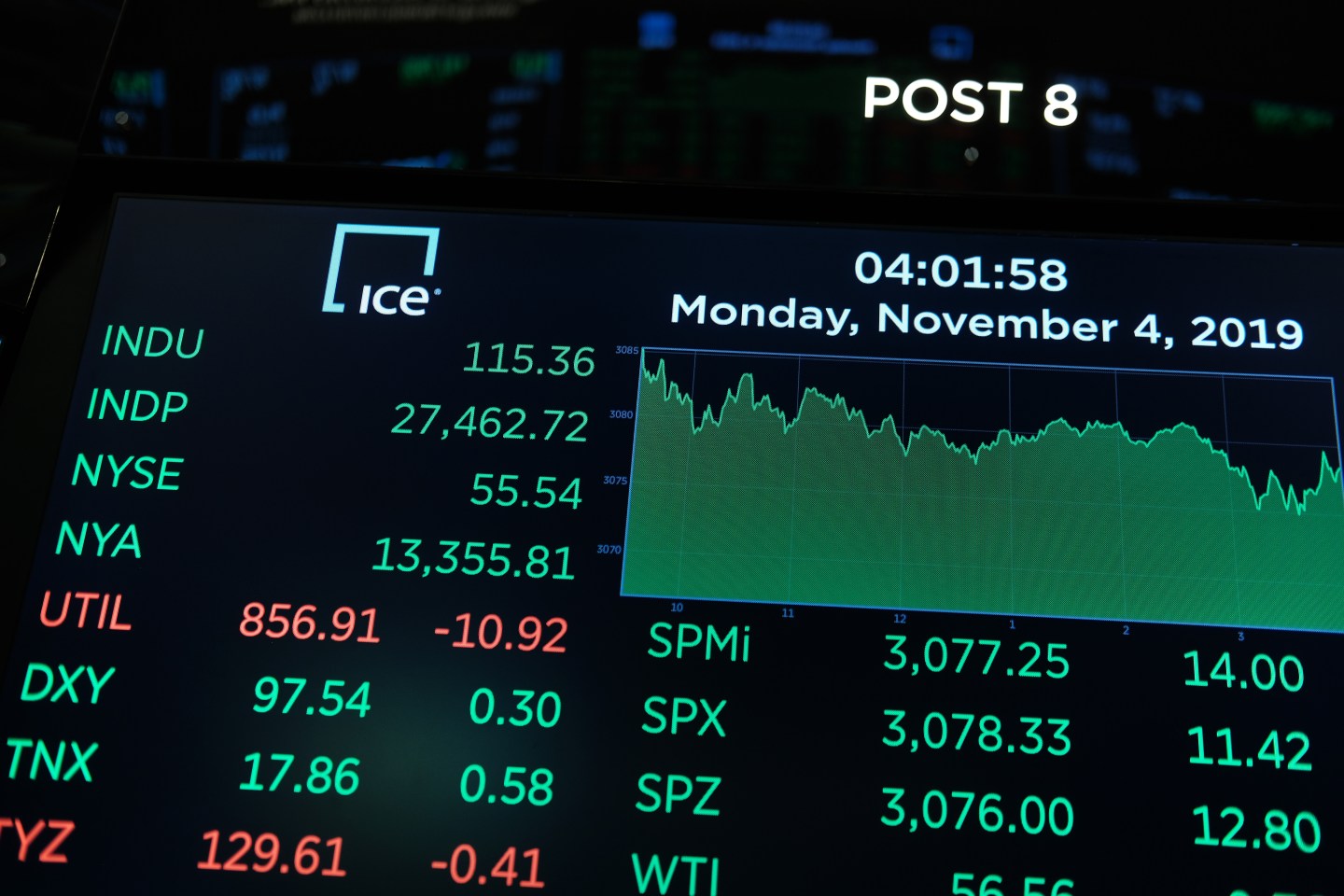U.S. corporate earnings are proving to be a lot more resilient than many Wall Street analysts were expecting only a few short weeks ago.
Nearly three-fourths of companies in the S&P 500 have reported their third-quarter results so far. In the run-up to earnings season, headlines in the financial press warned of an earnings recession, a bleak outlook for companies, and the peril of a derailed stock market.
So far, however, the state of financial health of major U.S. companies has looked a little better than expected—though nothing’s simple when it comes to earnings reports. Some notable names still have to report this week. They include Disney, Qualcomm, CVS, Square, and Bidu. But the trend so far suggests a quarterly results season performing above predictions.
The art of lowballing
John Butters, senior earnings analyst at Factset, combed through the 355 companies in the S&P 500 that reported through last week. He found that 76% of them had reported a positive EPS surprise while 61% had reported a positive revenue surprise.
That’s a strong showing of better-than-forecast financials, but maybe not quite as stellar as it seems at first blush. “Over the past 5 years, 72% of S&P 500 companies have beaten EPS estimates while 59% have beaten revenue estimates,” Butters says.
It’s not clear why well more than half of companies prove so adept, quarter after quarter, at posting results above Wall Street’s forecasts. Many companies have been buying back shares at a record pace, which can lift the EPS figure by lowering the number of shares outstanding. But Butters says that Factset’s EPS figures are weighted to factor out the impact of buybacks.
It’s more likely to do with the well-worn customs of Wall Street. Companies have learned that if they lowball their earnings guidance, they might enjoy a brief rise in their share price when they handily jump over the bar of expectations. Research analysts rely on this guidance in setting their own estimates.
Companies also have more flexibility in controlling the bottom line, which makes it easier to deliver an earnings surprise than a revenue surprise. Revenue is typically subject to strict reporting requirements, and, for multinationals at least, can fluctuate on something they have little control of—big swings in the dollar. But companies can improve profits by reducing their operating costs or excluding one-time charges from their GAAP earnings.
Still, it’s welcome news that there have been a higher-than-average percentage of companies delivering earnings surprises this quarter. That speaks to the continued health of many companies during a quarter when trade tensions were rising, overseas economies were struggling, and corporate executives were growing pessimistic about the U.S. economy.
Earnings recession?
Not all the news is good. Companies may be beating Wall Street estimates, but overall earnings in the S&P 500 may have been down in the third quarter. Based on earnings reported so far, and on estimates for those yet to report, Factset says third-quarter earnings could fall 2.7% from a year ago. That would mark the first time earnings have shrunk for three straight quarters since late 2015 and early 2016.
What’s more, expectations for earnings in the current quarter—a big one for many companies since it includes the busy holiday season—are now expected to decline 0.4%. A little more than a month ago, the forecast was for 2.4% earnings growth. In that sense, the predictions of an “earnings recession” may actually prove to be true.
Given that economic data has been showing U.S. manufacturing activity contracting in recent months, investors are finding it encouraging that so many companies are reporting better earnings than expected. Stocks of companies that have impressed investors with their earnings reports are up. Apple has risen 6% since its strong earnings, while JPMorgan and Tesla are up 11% and 25%, respectively. And, on Monday, the Dow, S&P 500 and Nasdaq Composite all hit record highs, though it seemed to be driven more by U.S.-China trade deal talks than company earnings.
The flip side is that companies that disappoint investors, whether through lower-than-expected earnings or other bad news, are getting sold off. On Monday alone, Uber fell as much as 9% in after-hours trading following its earnings report, while Under Armour plunged 19% and Shake Shack tumbled 16%.
“For the companies that have beaten expectations, the market response has been very positive, and yet the ones that have disappointed have really been beaten up,” Seema Shah, chief strategist at Principal Global Advisors said on Bloomberg Radio. “There’s still a lot of caution out there. I don’t think this is the end. I think that in Q4 you could see further weakness in earnings.”
All in all, most U.S. companies are weathering the current earning season pretty well. But three months from now, they’ll have to report earnings all over again, while jumping over whatever estimates Wall Street sets for them in the interim.
More must-read stories from Fortune:
—“Secret” recession signs may provide clues to when the next downturn is coming
—The HENRYs—high earners, not rich yet—may finally be having their moment
—Markets are betting that good things come in threes—especially rate cuts
—Why Virgin Galactic sidestepped a traditional IPO, according to its CEO
—A.I. vs. the wolves of Wall Street
Don’t miss the daily Term Sheet, Fortune’s newsletter on deals and dealmakers.












